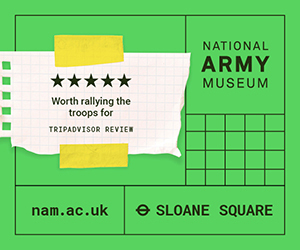Primary Times - the definitive what’s on and where to go family guide of activities and events for children of primary school age. Things to do with your kids during the school holidays including arts and craft activities, music and theatre for children, parties, competitions, days out, and family attractions along with term time drama schools, dance classes, after school clubs and sports activities. Things to do at a place near you!
National Trust presents Heritage Open Days again this September
England’s largest festival of history and culture, Heritage Open Days is back this 9 -18 September. Presented by the National Trust, supported by players of People’s Postcode Lottery and run by thousands of local organisations and volunteers, Heritage Open Days (HODs) gives everyone free access to experiences and events across England.
Each year places across the country, including select National Trusts sites near you, throw open their doors and give people the chance to see hidden places and try new experiences for free.
Liam Montgomery, Heritage Open Days Marketing & Projects Manager says:
“The festival is just around the corner, and it is fantastic to see that our community is putting on a staggering 4,000+ events – including more than 150 events at National Trust sites. Whether it’s a doorstep discovery, a local curiosity, a world-famous attraction or a one-of-a-kind experience - there really is something for everyone this year.”
Here are some of the National Trust HOD events happening in and around Lincolnshire and South Nottinghamshire.

Lincolnshire
Belton House
Enjoy free entry to Belton House and discover a grand family estate packed full of treasures and busting with history, promising exploration, fun, and relaxation for the whole family.
Generations of the Brownlow family made their mark on Belton, commissioning the finest designers and craftsmen of their age to shape the estate we see today. Explore the house and gardens that showcase cutting edge design and innovation, picnic in the expansive pleasure grounds, or burn off energy in the National Trust’s largest outdoor adventure playground.
As well as throwing the doors open, passionate guides will be running a programme of pop-up talks throughout the day to help everyone get to know the best of Belton, from its surviving Carolean architecture to the creative women that populated the estate.
Event times:
- Saturday 17 September, 0930-1730
- Sunday 18 September, 0930-1730
*pre-booking essential*
Please visit the website and social media for more details via https://www.nationaltrust.org.uk/belton-house

Woolsthorpe Manor, nr Grantham - Archaeological Test Pits
Come and see real archaeological test pits at Woolsthorpe Manor, the home of Sir Isaac Newton, to investigate the tantalising results discovered through a geophysical survey undertaken during the Festival of Archaeology earlier this year.
The survey identified what appears to be the remains of a 17th century building close to Newton's manor. Witness National Trust volunteers, in-house archaeologists and local archaeology group investigating some of the anomalies, and seize the opportunity to ask questions. Is it a house? How old is it and who lived there? This event will be held especially for Heritage Open Days and is free to visit.
This is an outdoor event that you are welcome to observe closely and ask us any questions about what we're finding.
Event Times: Sunday 11 September: 1100-1700.
No booking necessary for observing the test pits.
Please see full details here: Events | Heritage Open Days
_400_400_80_s_c1.jpg)
Tattershall Castle
Basements to Battlements: Investigating Tattershall Castle
Tattershall Castle is one of the earliest & finest brick-built castles in England. Built by Ralph Cromwell in 1434, restored from ruin in 1914 by Lord Curzon, & left to the National Trust in 1925, explore our basements to battlements today!
Rising proudly from the flat Lincolnshire fens, Tattershall Castle, with its huge Gothic fireplaces and church-like windows, was designed to impress. Built by Lord Ralph Cromwell, Treasurer of England, it was designed to show off his wealth, position and power.
The Great Tower is one of the earliest and finest surviving examples of English medieval brickwork and was saved from exportation to America by Lord Curzon of Kedleston in 1911. Take the winding staircase, wander through vast echoing chambers and walk out onto the battlements revealing the beauty of the Lincolnshire countryside.
Event Times
- Saturday 10 September: 1030-1630 (last admission 1530)
- Sunday 11 September: 1030-1630 (last admission 1530)
No booking required
For full details please visit: Events | Heritage Open Days
Gunby Estate, Hall and Gardens
A homely country house dated 1700 set in Victorian walled gardens at the foot of the Lincolnshire Wolds.
The stunning gardens and grounds are open, along with Gunby’s second-hand bookshop. The house (ground floor and partial first floor only) is open from 1100-1400. Timed tickets for the house can be obtained from the stable on a 'first come, first served' basis from 1100-1350 on the day of your visit. The last admission to the house is 1350.
To secure your parking space and admission to the gardens, please pre-book via the Gunby website. Gunby's Heritage Open Days are on Saturday 10 and Sunday 11 September and on these days there will be no admissions charge.
Event Times: Saturday 10 and Sunday 11 September
**Pre-booking essential**
Gardens open 1000-1600 (Last admission 1500)
House opens 1100-1430, last entry at 0150, by timed ticket collected on day (subject to availability)
For full details please visit: https://www.nationaltrust-tickets.org.uk/event-tickets/33266?catID=32918&branches.branchID=2348
Nottinghamshire
The Workhouse and Infirmary
Come and discover what life was like for people who sought refuge at The Workhouse & Infirmary. Learn the stories of those who lived and worked here and how this evolved over time, with the site providing shelter for those in need up until the 1980s.
Behind every door is a story and the Workhouse and Infirmary bears witness to over 160 years of changing social policy and attitudes towards the poor and vulnerable in society. Built in 1824 for up to 158 inmates, the Workhouse is one of the best-preserved examples of the hundreds of workhouses built across the country. There is so much here to discover and learn. Come and meet a costumed character and hear their stories, chat to a room guide, take an outside tour (limited spaces), explore the site with one of our digital guides, complete a children’s trail, wander in the kitchen garden and participate in a mindful walk (smart phone required), walk in the historic infirmary wards or relax in our second-hand bookshop or café.
Current exhibitions: The Nottingham Asylum Project by Backlit, a creative community research project exploring the history of The Sneinton Asylum and mental health; Care and Conservation, a photographic exhibition celebrating 20 years of The Workhouse being open to the public, featuring previously unseen pictures of the meticulous conservation work involved; The Women’s Quilt and The Leighann Wightman Quilt which focus on domestic abuse; and the Florence Nightingale Comes Home exhibition.
Event Times:
- Saturday 17 September: 1030-1600, last admission 1500
- Sunday 18 September: 1030-1600, last admission 1500
No booking required
Please see full details here: Events | Heritage Open Days
_400_400_80_s_c1.jpg)
Clumber Park
Celebrate Heritage Open Days with us on Friday 9th September and explore astounding inventions at Clumber Park.
A tour of the Victorian Glasshouse in the walled kitchen garden
At 450ft (130m) the long-range Glasshouse in Clumber Park’s Walled Kitchen Garden is the longest Glasshouse cared for by the National Trust. The iconic Glasshouse runs the entire width of the four-acre garden and is an elegant building with fine detailing such as beautiful cast iron heating grilles and decorative finials and woodwork. It was built in part by James Gray, horticultural builders of Chelsea, whose other commissions included Sandringham and Cliveden.
A walk and talk on the history of the mansion and the famous ornamental bridge
Owned by the Dukes of Newcastle, Clumber House once stood at the heart of Clumber Park and underwent several dramatic changes, either to accommodate fashions of its time or as a result of the fires that struck the property in 1879 and 1912. It was eventually demolished in 1938. For over 200 years, the Ornamental Bridge has been standing proudly at Clumber Park, come and discover why so many people have made their own precious memories there, from sharing time with family to proposals and engagements.
Event Times: Friday 9 September
No booking required
For more details please visit https://www.nationaltrust.org.uk/clumber-park
Please see full details here: Events | Heritage Open Days
_400_400_80_s_c1.jpg)
And just over the border…
Lyveden, nr Peterborough
Set in the heart of rural Northamptonshire, Lyveden is a remarkable survivor of the Elizabethan age. Begun by Sir Thomas Tresham to symbolise his Catholic faith, Lyveden remains incomplete.
There are tranquil moats, viewing terraces and an Elizabethan orchard to explore, as well as an enigmatic garden lodge covered in religious symbols. The full extent of Sir Thomas's symbolic design remains unexplained to this day.
Our audio guide describes Sir Thomas’s dream and how it all ended in a nightmare for the Tresham family with their involvement in the Gunpowder Plot.
For younger visitors, a trail brings to life the intriguing symbols carved onto the lodge. Families can find all seven symbols recreated in the grounds at Lyveden and play together through nature-based activities - each on inspired by one of the symbols.
Lyveden is also the perfect starting point to explore the Lyveden Way, a circular path through beautiful meadows, woodland and villages.
Event Times
- Saturday 10 September: 1000-1600
- Saturday 17 September: 1000-1600
No booking required
Please see full details here: Events | Heritage Open Days
_400_400_80_s_c1.jpg)





